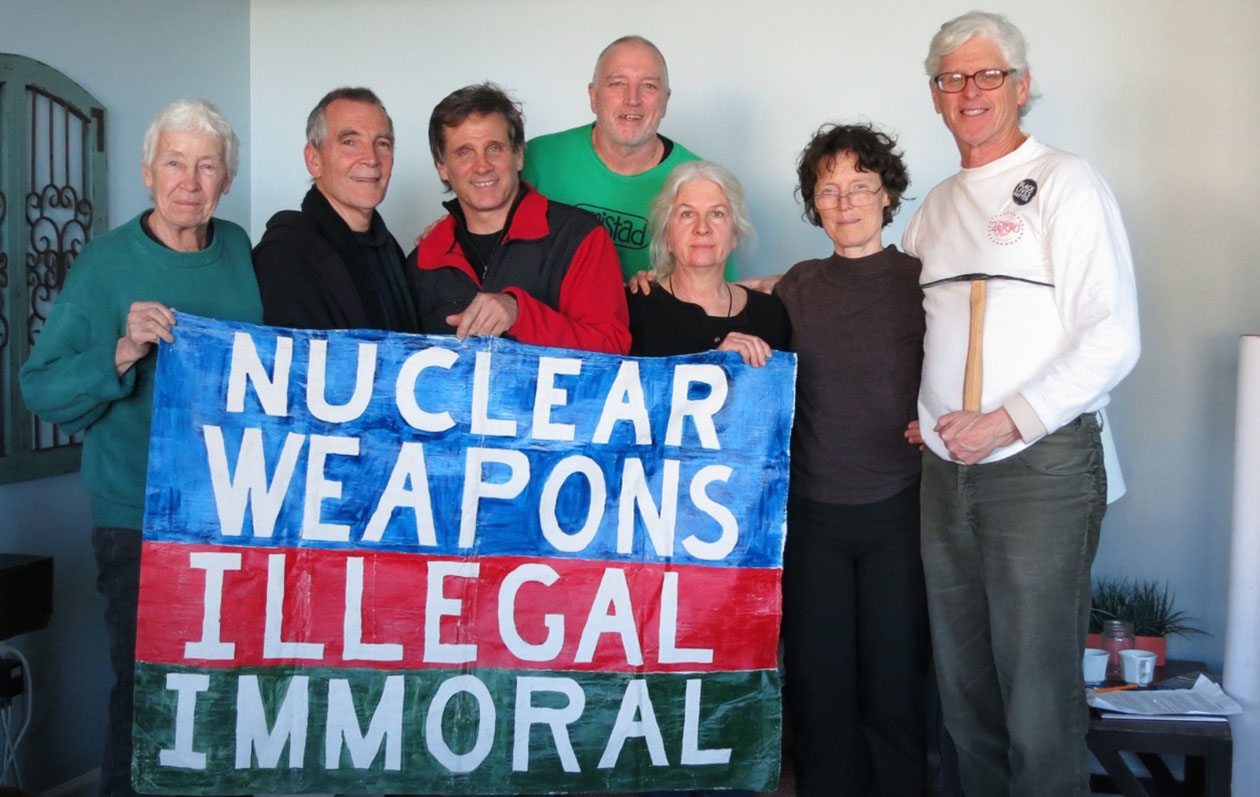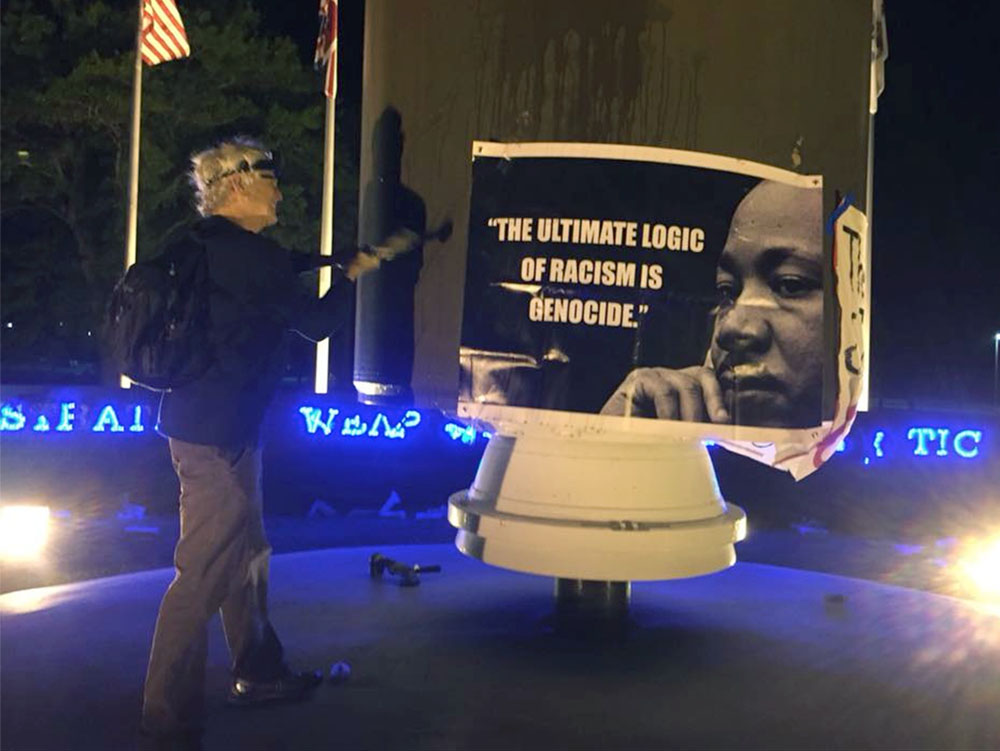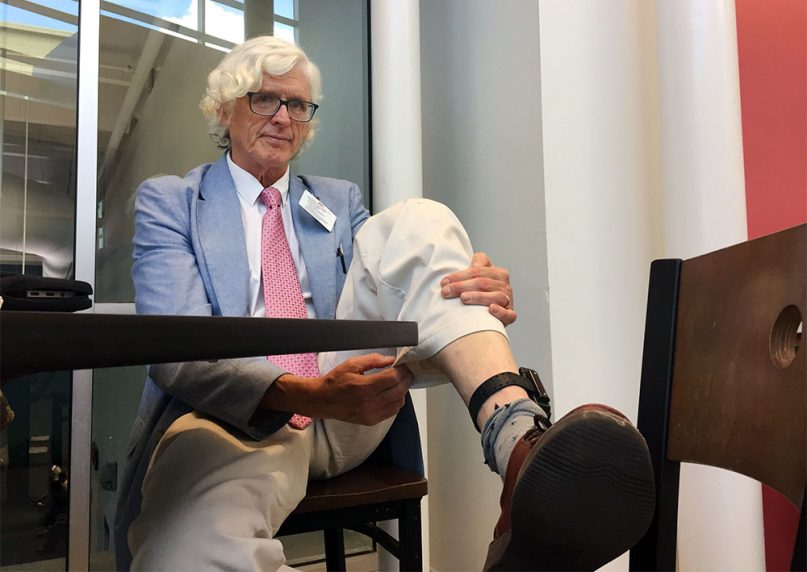(RNS) — On Thursday (Jan. 14), Patrick O’Neill will report to the Federal Correctional Institution near Elkton, Ohio, to serve a 14-month sentence for breaking into a nuclear submarine base as part of a symbolic nuclear disarmament action he took up with six other Catholic pacifists more than two years ago.
But on his way to prison, O’Neill has taken up a new cause: protecting inmates from COVID-19.
READ: Catholic worker who broke into naval base to protest nuclear weapons sentenced
Some 329,298 prisoners across the United States have tested positive for the coronavirus and about 2,020 have died, according to the Marshall Project, the online journalism organization focused on criminal justice.
Prison facilities are often overcrowded and poorly ventilated, making it nearly impossible to practice social distancing and other preventative measures to avoid contagion.
O’Neill, who runs a Catholic worker house in Garner, a suburb of Raleigh, North Carolina, has been urging North Carolina’s state government to empty its prisons of anyone who is medically vulnerable, nearing the end of their sentence or of low risk to public safety.

The Kings Bay Plowshares 7. From left to right: Elizabeth McAlister, Stephen Kelly, Carmen Trotta, Mark Colville, Martha Hennessy, Clare Grady and Patrick O’Neill. Photo courtesy of the Kings Bay Plowshares 7
On Monday, he called a news conference to urge elected officials to do so.
“My family can’t come visit me because it’s not safe,” O’Neill said. “If it’s not safe for visitors, how come it’s safe for prisoners? What we do with prisoners is we devalue them. Their humanity is not quite as important as everyone else.”
O’Neill, who is 64, is part of the Kings Bay Plowshares 7. The group was found guilty last year of destroying government property at the Kings Bay naval base in Georgia, where the Catholic pacifists spilled blood on a Navy wall insignia, spray-painted anti-war slogans on a walkway and banged on a monument to nuclear warfare.
All seven are part of a 39-year-old anti-nuclear movement called Plowshares. They are all Catholic and work at a collection of about 200 independent houses across the country that feed and house the poor.
O’Neill asked U.S. District Court Judge Lisa Godbey Wood to delay his sentence until he is vaccinated for COVID-19, but she denied the motion. Several others of the Plowshares group are already serving prison sentences.
For the past several months, O’Neill has participated in a 58-day vigil to demand that North Carolina Gov. Roy Cooper use his clemency powers to reduce the state’s prison population to prevent the further spread of COVID-19 in the prisons. A runner, O’Neill did 150 laps around the governor’s mansion and gave a testimonial.
“I appreciate his efforts to not only try to help himself but use his platform to lift the issue up for people who can’t call their own press conference,” said Daniel Bowes, a lobbyist for the North Carolina Justice Center who led the vigil outside the governor’s residence and spoke at the news conference Monday. The vigil began the day after the Nov. 3 election and lasted until the governor’s inauguration on Jan. 9.

Patrick O’Neill attempts to deface a nuclear monument with a hammer at the Kings Bay Submarine Base in April 2018. Photo courtesy of the Kings Bay Plowshares 7
O’Neill’s advocacy on behalf of prisoners isn’t new. For years on Christmas Day, he has led a group of activists to sing carols outside Central Prison, a maximum-security facility in Raleigh that houses the state’s 143 death-row inmates. He is also dedicated to abolishing the death penalty.
This won’t be his first time behind bars. O’Neill has served time before for nonviolent actions on behalf of various causes. But he is older now, a grandfather and more vulnerable.
“I’m very privileged even in the worst of situations,” he said. “People take care of me. So many people I met in prison have never gotten a letter. They have no family support. It’s a tragic subculture.”
Advocating on behalf of fellow prisoners will continue to be an ongoing cause for O’Neill.
“The measure of a society is how we treat prisoners who have no power,” he said. “It’s a shameful thing.”





